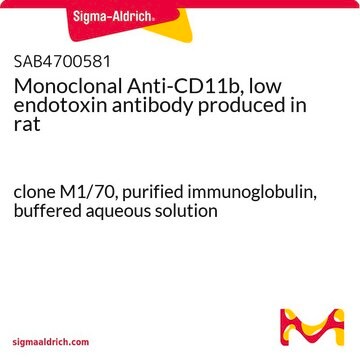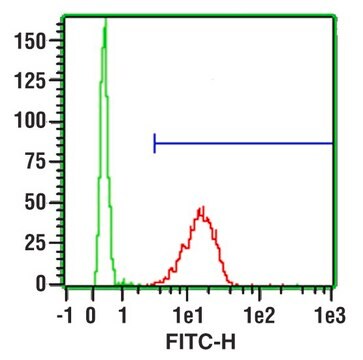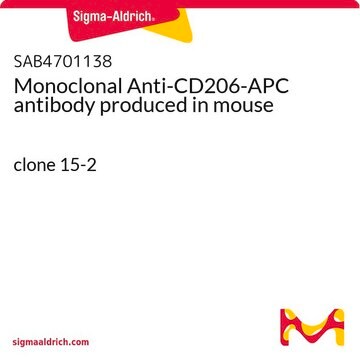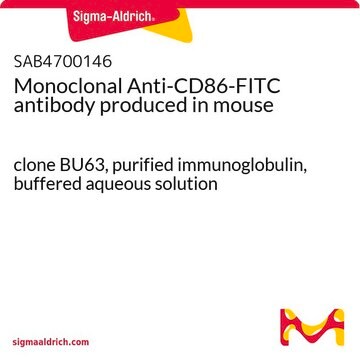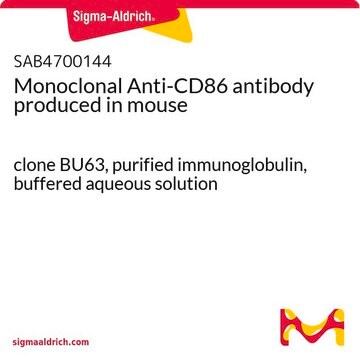MABF80A
Anti-CD11b, (human/mouse), FITC, clone M1/70 Antibody
clone M1/70, from rat, FITC conjugate
Synonym(s):
Integrin alpha-M, CD11 antigen-like family member B, CR-3 alpha chain, Cell surface glycoprotein MAC-1 subunit alpha, Leukocyte adhesion receptor MO1, CD11b, CD11b,
About This Item
Recommended Products
biological source
rat
Quality Level
conjugate
FITC conjugate
antibody form
purified antibody
antibody product type
primary antibodies
clone
M1/70, monoclonal
species reactivity
human, mouse
packaging
antibody small pack of 25 μg
technique(s)
flow cytometry: suitable
isotype
IgG2bκ
UniProt accession no.
target post-translational modification
unmodified
Gene Information
human ... ITGAM(3684)
Related Categories
General description
Immunogen
Application
Inflammation & Immunology
Immunoglobulins & Immunology
Quality
Flow Cytometry Analysis: 0.5 μg from a representative lot detected CD11b, in one million C57Bl/6 bone marrow cells.
Physical form
Storage and Stability
Note: It is recommended to store the product undiluted at 2-8°C and protected from prolonged exposure to light. Do not freeze.
Other Notes
Disclaimer
Not finding the right product?
Try our Product Selector Tool.
Storage Class Code
12 - Non Combustible Liquids
WGK
nwg
Flash Point(F)
Not applicable
Flash Point(C)
Not applicable
Certificates of Analysis (COA)
Search for Certificates of Analysis (COA) by entering the products Lot/Batch Number. Lot and Batch Numbers can be found on a product’s label following the words ‘Lot’ or ‘Batch’.
Already Own This Product?
Find documentation for the products that you have recently purchased in the Document Library.
Our team of scientists has experience in all areas of research including Life Science, Material Science, Chemical Synthesis, Chromatography, Analytical and many others.
Contact Technical Service